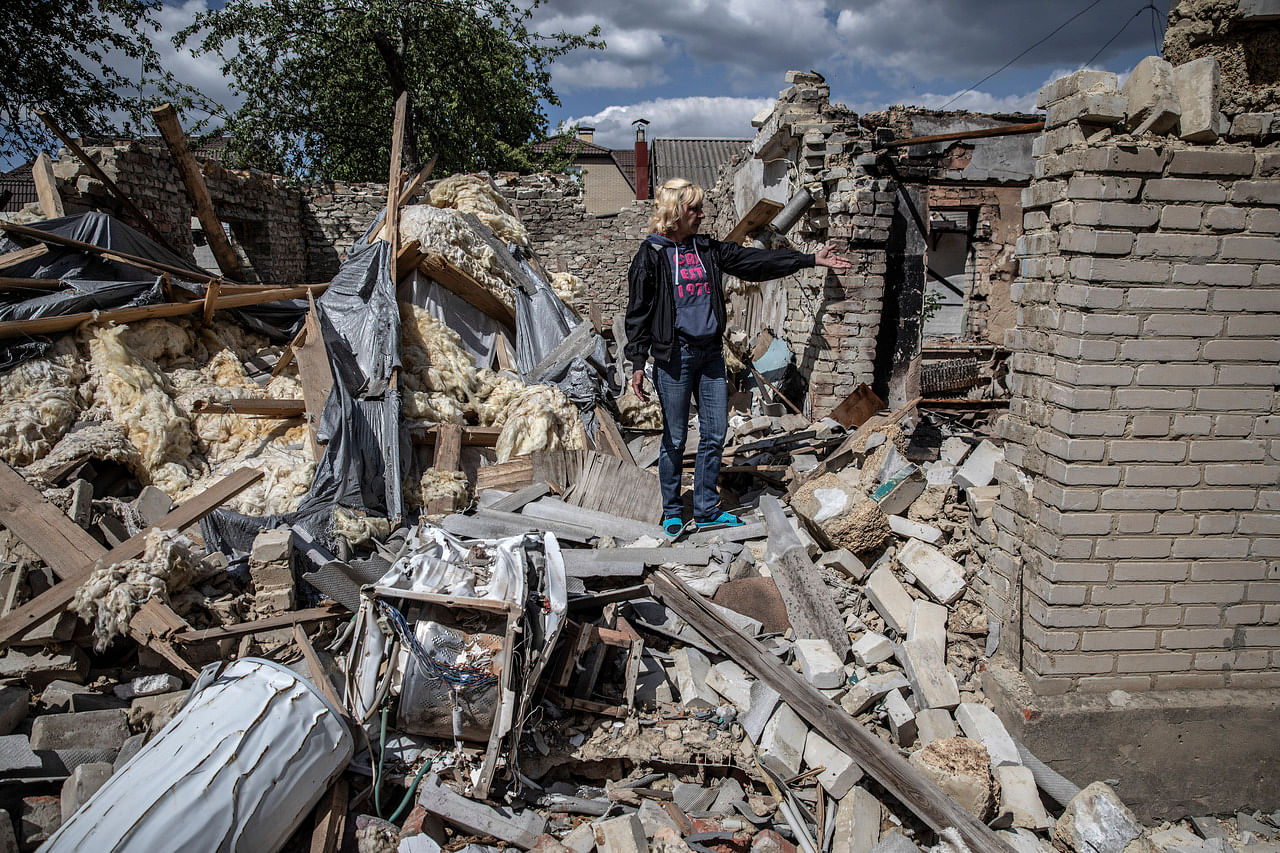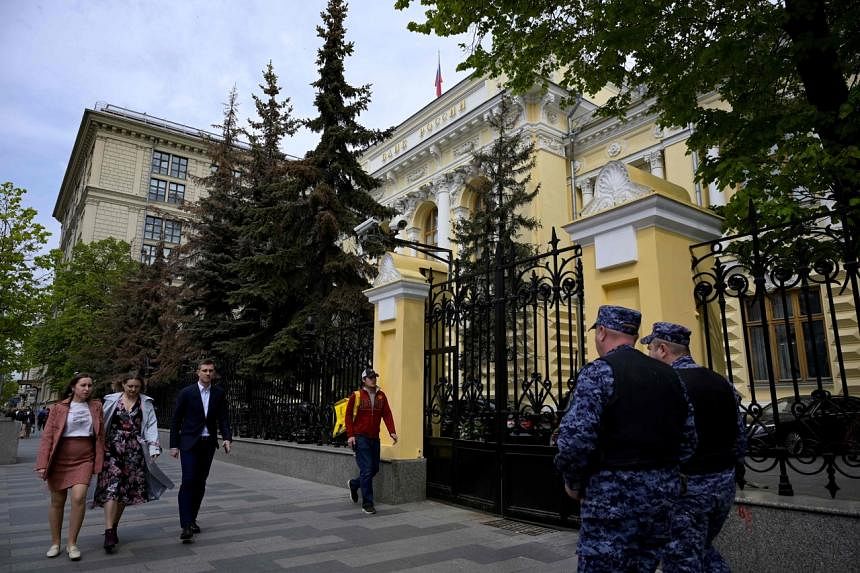MOSCOW (NYTIMES) - Gripped by heavy economic sanctions and increasingly isolated from Western suppliers, Russia worked Thursday (May 26) to keep its factories and businesses running and stave off a return to Soviet-era scarcity.
As the central bank slashed interest rates again in an effort to prop up the economy, its chair, Ms Elvira Nabiullina, warned that the coming months would be "difficult for both companies and citizens" as the fallout on the Russian economy deepens more than three months into the invasion of Ukraine.
The economic toll on Russia, although difficult to quantify, has spread widely, from its largest companies to its small shops and workers.
Basic items, from paper to buttons, are in short supply. Prices of consumer goods have been soaring, with the inflation rate rising to 17.8 per cent last month before dipping slightly.
Sales in the lucrative energy sector, while still high, are projected to fall as European customers begin to pivot away from Russian oil. Airlines, cut off from Western manufacturers, are searching for spare parts.
The Russian automaker Avtotor even announced a lottery for free 10-acre (4ha) plots of land - and the chance to buy seed potatoes - so workers could grow their own food amid "the difficult economic situation."
The company announced the vegetable-farm giveaway after Western sanctions hobbled production at its assembly plant in Kaliningrad.
"I call what is happening now a horrible experiment," Mr Ivan Fedyakov, who runs Infoline, a market research firm in Russia, said in a telephone interview. "It has never happened in modern history when such a big and deeply integrated country would be so quickly and abruptly fenced off from the global economy."
The shortages and supply chain issues will only worsen, economists predict, as the West moves to turn Russia into an economic pariah. It is unclear what might reverse that tectonic shift, short of major changes in Moscow, analysts say, including the end of President Vladimir Putin's rule.
The central bank has been cutting interest rates faster than expected as the rouble has rapidly appreciated, reaching its strongest level in four years against the US dollar this week. A strong rouble hurts exports and lowers government revenues from dollar-denominated energy sales.
Yet even that rebound in the rouble is a sign of weakness, economists say, reflecting a sanctions-induced collapse in imports that, combined with a continued gusher of energy revenues, has sent the country's current account soaring.
"The economic prospects for Russia are especially gloomy," the Bank of Finland said in an analysis this month. "By initiating a brutal war against Ukraine, Russia has chosen to become much poorer and less influential in economic terms."

Mr Putin, in a tacit acknowledgment of the economic toll of the war, promised this week to increase the minimum wage, pensions and military benefits, even as he shrugged off the mass exodus of foreign firms since the invasion on Feb 24.
"Sometimes you look at those leaving and think, 'Maybe thank God that they are,'" Mr Putin said in a televised meeting Thursday. "Our businesses and our manufacturers have grown up and will successfully find a place on ground prepared by our partners. Nothing will change."
Despite the devil-may-care official attitude, nearly 1,000 companies have left Russia, including Nike, Reebok, Starbucks and McDonald's, citing an untenable situation, as well as logistical and payment issues, among other reasons.
Delivery paths that Russia relies on to import materials for products as diverse as cars, tampons and ceramic plates have been blocked by European countries. DHL, UPS and FedEx have refused to make deliveries in Russia for months.
Companies such as Adobe and Oracle have suspended operations there, and there are concerns that Russia could soon run out of data storage space.
Russia has avoided some economic pain, at least temporarily, because the European Union has not been able to overcome Hungary's objections to a proposed oil embargo, which would be one of the toughest measures imposed by the West so far.
But oil revenues are still expected to decline over time as individual countries reduce their dependence on Russian energy.
On the battlefield, Russia's ambitions are narrowing to three cities in the Donbas region, where it has made significant gains and could soon gain complete control. Yet, with the unexpectedly rapid depletion of its troops and equipment, some analysts expect the battle to be Russia's last major offensive of the war.
On Thursday, Russian forces shelled Kharkiv, Ukraine's second-largest city, 25 miles (40km) from the Russian border, resuming attacks weeks after Ukrainian forces pushed Russian troops away from the city, giving it a brief respite.
Seven people were killed and 17 more were injured as five neighbourhoods came under fire from rocket-propelled grenade launchers and artillery, the head of the Kharkiv regional military administration, Mr Oleh Synyehubov, said.
"Many people returned to Kharkiv thinking they were safe," said a 28-year-old man in a bulletproof vest who gave his name only as Ilya. "But now they don't feel that way anymore. I saw four families in my apartment building packing up their cars to leave."

